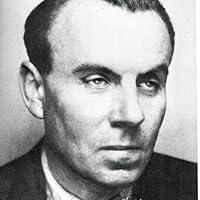
Louis-Ferdinand Céline
Sull'autore
Louis-Ferdinand Céline was a prominent French novelist and physician, known for his innovative narrative style and controversial views. His literary career began with the publication of "Journey to the End of the Night" in 1932, which is often hailed as one of the greatest novels of the 20th century. Céline's writing is characterized by its unique rhythm and use of colloquial language, which set him apart from his contemporaries. His works explore themes of existential despair, the absurdity of life, and the darker aspects of human nature, often reflecting his own tumultuous experiences during World War I and II.
Despite his literary acclaim, Céline's legacy is marred by his political beliefs, particularly his anti-Semitic writings during the 1930s and 1940s. These views have led to significant debate about the relationship between an artist's work and their personal beliefs. Céline's influence on modern literature is undeniable, inspiring countless authors and shaping the narrative techniques of later generations. His complex persona and the moral implications of his work continue to provoke discussion among literary scholars and readers alike.